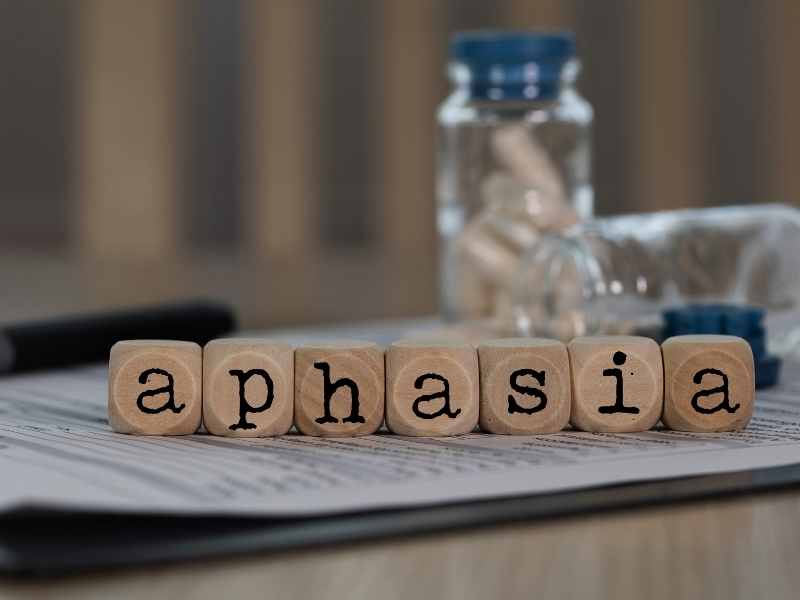
When it comes to caring for aging parents, considering how to offer help can be overwhelming. Most of us don’t feel equipped. Making matters more daunting is the fact that there is such a broad range of health issues, and an equally vast spectrum of severity within that range. Additionally, every individual is unique, mentally, emotionally, physically, and spiritually. To be sure, there is no one answer to the question of how to care well for an aging parent. However, being proactive is always a wise tack, and part of that process is becoming educated and observant.
In this post, we’ll look at a common condition called aphasia which many people in their advanced years face. You’ll become familiar with the signs that tend to signal aphasia, and as a result, you’ll be able to recognize if and when your aging parent begins to develop the signs. If the signs emerge, you can then consult your parent’s health care provider, and discuss pursuing speech therapy. A speech therapist trained to work with people suffering from aphasia can feel like a lifeline in the context of this frustrating and frightening condition.

What is Aphasia?
Aphasia is a condition resulting from sudden or progressive brain trauma which comes to bear on production of speech and comprehension of language. Aphasia can result from a sudden stroke, a severe head injury causing brain damage, or a growing brain tumor.
Perhaps you have noticed a change in your parent’s ability to produce words or process language. Recognizing this change is the first step in formulating a plan to help. It is beneficial to know what to look for so that you can find tailored care for your loved one as it is needed. Since many who care for their parents do not live with them, it becomes all the more important to learn about how to spot common signs of aphasia.
Signs of Aphasia
A diagnosis of aphasia results when a person’s speech is significantly impaired in one of the following modes of communication: auditory, verbal, reading and writing, or functional communication. Typically, a person with aphasia will present with difficulty in more than one, if not all, of the four modalities. Here are some signs to watch for as you consider whether or not your loved one may be suffering from aphasia:
- Inability to find words in verbal communication
A person with aphasia may struggle to complete a sentence because they get stuck in what seems to be a brain lag. In fact, their left brain is experiencing a slowing in function. A word which would have come to mind naturally in the past is suddenly one they cannot seem to think of and say. This change in word production is a hindrance to fluid conversation, and often causes significant frustration to the person experiencing it.
- Inability to pronounce words used in everyday speech
People with aphasia are sometimes unable to pronounce a word which used to roll off the tongue. This is another source of frustration for those experiencing it.
- Loss of enunciation of words
It is common for someone who has aphasia to sound as if their speech is slurred, almost like that of someone who is under the influence of alcohol. If your parent is speaking with slowed or slurred speech, relative to their usual speaking manner, this should signal to you that a doctor evaluation could be helpful.
- Loss of ability to express properly constructed sentences
One sign that often indicates aphasia is a person’s struggle to speak in coherent, complete sentences. This may manifest itself in the affected person speaking in sentences which contain detail but lack key connector words required for proper sentence structure and flow.
- Comprehension Problems
A person with aphasia can present with an inability to comprehend language. You may see a look of confusion or blankness on the face of the person experiencing this common behavior resulting from aphasia.
- Trouble with Reading
People impacted by aphasia might encounter reading difficulty. If you notice that your loved one, previously a competent reader, is struggling to perform this everyday task, you’ll want to consult a doctor.
- Sudden inability to spell correctly
People suffering from aphasia can lose the ability to spell properly. As with the other symptoms associated with aphasia, this can incite frustration, and even fear, on the part of the person affected.

Getting Help
In many cases, the next best step, once aphasia is identified, is connecting your loved one with help — targeted help. Thankfully, such help exists. When a diagnosis of aphasia is determined, speech therapy can be an effective tool for improvement. In fact, if a stroke has precipitated the aphasia, then speech therapy can often put the person affected on a path to recovery. Scientists, who are experts in the field of cognitive neuroscience, have produced evidence-based, cutting-edge research which reveals that speech therapy can benefit the person with aphasia at any point it is employed, especially when utilized with regularity and frequency.
Delivery of speech therapy comes in different forms these days making it more widely accessible than ever before. Traditionally, speech therapy has taken place in a one-on-one format in an office. This option is still a good one, and can be a viable option when transportation and scheduling can be coordinated. In cases in which either is a hindrance, speech therapy can happen over the internet.
Online delivery of speech therapy allows for the person with aphasia to remain in the comfort of his or her own home. This convenience can be a game changer. It can be the difference between accessing speech therapy, and not being able to do so. Lastly, speech therapy is now available through an actual app. Whether the person with aphasia uses the app independently, or is guided through the app activities by a facilitator, the exercises can be as entertaining as they are therapeutic.
Aphasia is not uncommon among people in their advanced years of life. If your parent is showing any of the aforementioned signs of aphasia, he or she is a prime candidate for speech therapy. Not only will your loved one be helped, but also, you will feel engaged in his or her care. In short, you can feel good about connecting your parents with speech therapy as a proactive tool – a tool specifically designed by speech and language pathologists to improve the cognitive and speech health of individuals struggling with aphasia.

